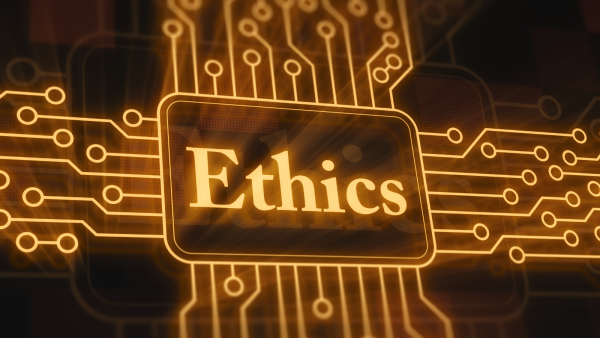It's no secret that I've been a proponent of the proliferation and adoption of AI. I've been the CEO of AI companies since the early 90s, but it was the early 2000s when I realized what the future had in store.
A few years ago, in anticipation of where we are today, I started participating in discussions about the need for governance, ethical guidelines, and response frameworks for AI (and other exponential technologies).

Last week, I said that we shouldn't slow down the progress of generative AI … and I stand by that, but that doesn't mean that we shouldn't be working hastily to provide bumper rails to keep AI in check.
There are countless ethical concerns we should be talking about:
- Bias and Discrimination – AI systems are only as objective as the data they are trained on. If the data is biased, the AI system will also be biased. Not only does that create discrimination, but it also leaves systems more susceptible.
- Privacy and Data Protection – AI systems are capable of collecting vast amounts of personal data, and if this data is misused or mishandled, it could have serious consequences for individuals' privacy and security. The security of these systems needs to be managed, but also where and how they get their data.
- Accountability, Explainability, and Transparency – As AI systems become increasingly complex and autonomous, it can be difficult to determine who is responsible when something goes wrong, not to mention the difficulty in understanding how public-facing systems arrive at their decisions. Explainability becomes more important for generative AI models as they're used to interface with anyone and everyone.
- Human Agency and Control – When AI systems become more sophisticated and autonomous, there is fear about their autonomy … what amount of human control is necessary, and how do we prevent "malevolent" AI? Within human agency and control, we have two sub-topics. First, is job displacement … do we prevent AI from taking certain jobs as one potential way to preserve jobs and the economy, or do we look at other options like universal basic income. We also have to ask where international governance comes in, and how we ensure that ethical standards are upheld to prevent misuse or abuse of the technology by bad actors.
- Safety and Reliability – Ensuring the safety and reliability of AI systems is important, particularly in areas such as transportation and healthcare where the consequences of errors can be severe. Setting standards of performance is important, especially considering the outsized response when an AI system does commit an "error". Think about how many car crashes are caused by human error and negligence… and then think about the media coverage when a self-driving car causes one. If we want AI to be adopted and trusted, it's going to need to be held to much higher standards.
These are all real and present concerns that we should be aware of. However, it's not as simple as creating increasingly tight chains to limit AI. We have to be judicious in our applications of regulation and oversight. We intrinsically know the dangers of overregulation – of limiting freedoms. Not only will it stifle creativity and output, but it will only encourage bad actors to go further beyond what the law-abiding creators can do.
If you want to see one potential AI risk management framework, here's a proposition by the National Institute of Standards and Technology – it's called AI RMF 1.0. It's a nice jump-off point for you to think about internal controls and preparation for impending regulation. To be one step more explicit … if you are a business owner or a tech creator, you should be getting a better handle on your own internal controls, as well as anticipating external influence.
In conclusion, there is a clear need for AI ethics to ensure that this transformative technology is used in a responsible and ethical manner. There are many issues we need to address as AI becomes more ubiquitous and powerful. That's not an excuse to slow down, because slowing down only lets others get ahead. If you're only scared of AI, you're not paying enough attention. You should be excited.
Hope that helps.

Leave a Reply